Browse in the Library:
| Artist or Composer / Score name | Cover | List of Contents |
|---|---|---|
| Will B. Morrison – Melody in F (Syncopated Waltz) sheet music |
 |
|
| Will Young – Anything Is Possible | ||
| William Best I Love You For Sentimental Reasons (Jazz Standard) | William Best I Love You For Sentimental Reasons (Jazz Standard) | |
| William Eveleth – Blues Jazz and Rock Riffs For Keyboards |
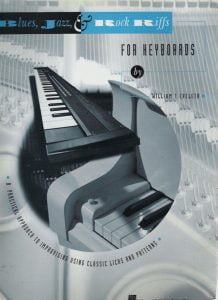 |
|
| William Gillock In Old Vienna Musescore File.mscz | ||
| William Gillock Valse Etude In Romantic Style Musescore File.mscz | ||
| William Joseph – Within (Songbook) (William Joseph) |
 |
William Joseph – Within (Songbook) (William Joseph) |
| William Robinson – My Girl | ||
| William Russo Composing Music A New Approach (ebook) |
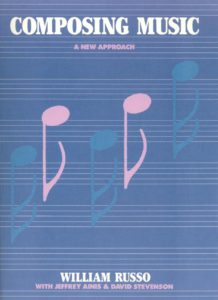 |
|
| Willie Dixon Preacher Of The Blues (2011) Mitsutoshi Inaba (Book) Biography |
 |
|
| Willie Fugal S Blues Piano transcription |
 |
|
| Willie Nelson – Always on My Mind Sheet Music |
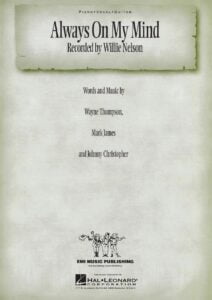 |
|
| Willie Nelson – On My Mind | ||
| Willie The Lion Smith – Finger Buster transcription |
 |
|
| Willie The Lion Smith Echo of Spring transcription |
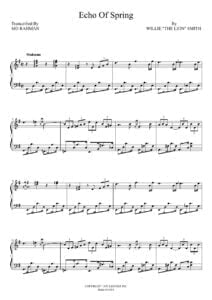 |
|
| Willow Weep For Me Words And Music By Ann Ronell 1932 Jazz Standard (Vintage sheet music) |
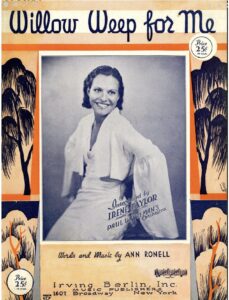 |
|
| Wim Mertens – American Minimal Music La Monte Young Terry Riley Steve Reich Philip Glass |
 |
Book La Monte Young Terry Riley Steve Reich Philip Glass |
| Wim Mertens – Close Cover | Wim Mertens – Close Cover | |
| Wim Mertens – Struggle For Pleasure | Wim Mertens – Struggle For Pleasure | |
| Wim Mertens – Time Passing |
 |
|
| Wim Mertens Humility |
 |
|
| Wim Mertens Lir |
 |
|
| Windham Hill piano sampler |
 |
Windham Hill piano sampler |
| Windy Whistle (Le Renard et l’Enfant OST) Alice Lewis | ||
| Wings (McCartney) – Greatest Hits |
 |
Wings sheet music |
| Winifred Atwell Album Of Rags No 1 Original arrangements Vintage songbook |
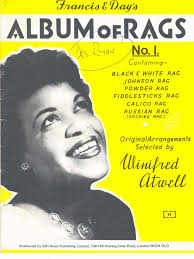 |
Winifred Atwell Album Of Rags No 1 Original arrangements Vintage songbook |
| Winifred Atwell Marguerite Monnot The Poor People Of Paris ( La Goualante Du Pauvre Jean) Piano Solo |
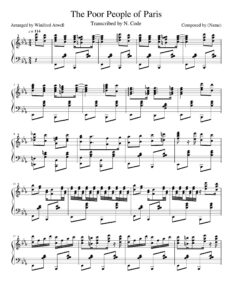 |
|
| Winnie The Pooh The Honey Tree Sheet Music (Disney) |
 |
Winnie The Pooh The Honey Tree Sheet Music (Disney) |
| Winter Sonata O.S.T. (Ryu) | ||
| Winter Wonderland Other Christmas Favorites Songbook Piano Vocal guitar Chords |
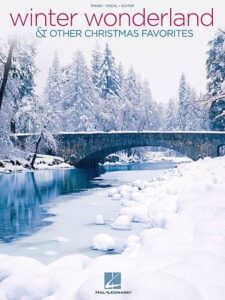 |
Winter Wonderland and Other Christmas Favorites Songbook Piano Vocal guitar Chords |
| Wish You Were Here – Pink Floyd (Musescore File).mscz | ||
| Within Temptation – Our Solemn Hour | ||
| Without you (Maria Carey) | ||
| Without You (Mariah Carey Piano Arr ) (Musescore File).mscz | ||
| Wiz Khalifa & Charlie Puth See You Again (Solo Piano) |
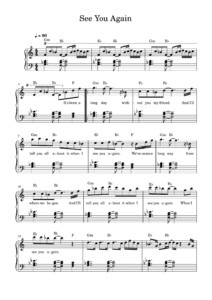 |
|
| Wolf Wagner Paraphrase Über Die Walküre |
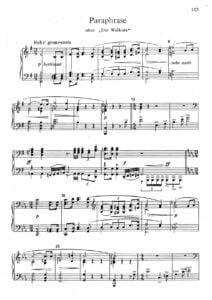 |
|
| Wolfe Richard Legit Professional Fake Book More Than 1010 Songs |
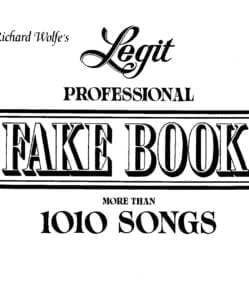 |
Wolfe Richard Legit Professional Fake Book More Than 1010 Songs |
| Wolfenzon – Stücke für Klavier | Wolfenzon – Stücke für Klavier | |
| Womack, Bobby – Midnight Mover My Autobiography The True Story of the Greatest Soul Singer in the World (Book) |
 |
|
| Woman in love (Barbra Streisand) | ||
| Women Of Pop Rock Songbook Twenty-Two Hot Hits for Easy Piano |
 |
Women Of Pop Rock Songbook Twenty-Two Hot Hits for Easy Piano |
| Wonderful Christmastime -Paul Mccartney (Wings) (Musescore File).mscz | ||
| Wonderful Life – Black (Easy Piano Solo Sheet Music) (Musescore File).mscz | ||
| Woody Allen – A propósito de nada (autobiografía)(2020) |
 |
|
| Woody Allen – Apropos of Nothing (2020) Autobiography | Woody Allen – Apropos of Nothing-Simon and Schuster (2020) Cover | |
| Woody Guthrie This Land Is Your Land (Easy and Intermediate Piano Solo) |
 |
|
| World Hits Of Jazz Standard |
 |
World Hits Of Jazz Standard |
| Wuthering Heights (Ryuichi Sakamoto) | ||
| Wynton Kelly – Autumn Leaves Solo transcription | Wynton Kelly – Autumn Leaves Solo transcription | |
| Wynton Kelly – Dark Eyes Solo Piano transcription |
 |
|
| Wynton Kelly – Dark Eyes Solo Piano Transcription (Musescore File).mscz | ||
| Wynton Kelly – Full transcriptions | Wynton Kelly – Full transcriptions | |
| Wynton Kelly – I Dig of You Solo transcription |
 |
|
| Wynton Kelly – If I should Love You Solo transcription |
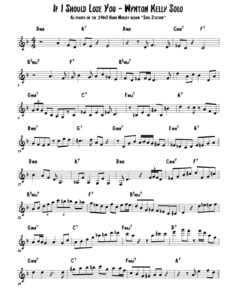 |
|
| Wynton Kelly – Jazz Piano Collection |
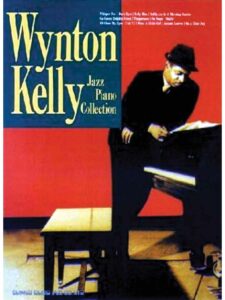 |
Wynton Kelly Piano Collection- |
| Wynton Kelly – Someday my prince will come (Piano solo) |
 |
|
| Wynton Marsalis Trumpet Genius Gourse, Leslie (Book) |
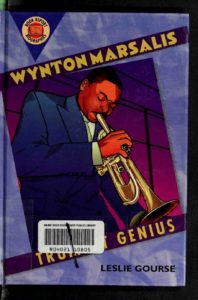 |
|
| Wynton Marsalis – Caravan (Solo) |
 |
|
| Wynton Marsalis – Darn That Dream (Solo) | Wynton Marsalis – Darn That Dream (Solo) | |
| Wynton Marsalis – Dealfayos Dillema (Solo) |
 |
|
| Wynton Marsalis – Standards (sheet music transcriptions) |
 |
Wynton Marsales – Standards (sheet music transcriptions) |
| Wynton Marsalis In The Court Of King Oliver (Trumpet and rhythm section) |
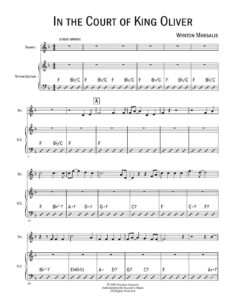 |
|
| Wynton Marsalis Omnibook For B Flat Instruments Transcribed exactly from his recorded solos |
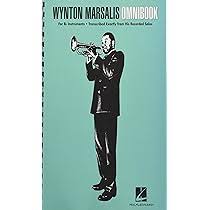 |
Wynton Marsalis Omnibook For B Flat Instruments Transcribed exactly from his recorded solos |
| Wynton Marsalis Struttin’ With Some Barbeque (Live) Wynton Marsalis’ Trumpet Solo |
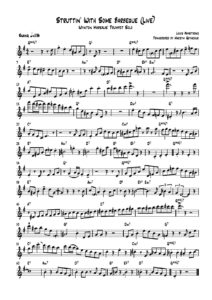 |
|
| Xenoblade Chronicles 2 Loneliness Kenji Hiramatsu | Xenoblade Chronicles Opening Theme Game sheet music | |
| Xenoblade Chronicles Opening Theme Game sheet music Yoko Shimomura |
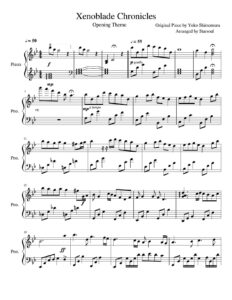 |
|
| Yamaha E443 Songbook digital keyboard PSR-E443 |
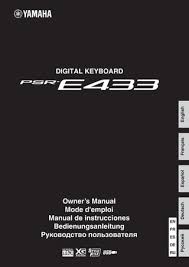 |
|
| Yamaha Keyboard Songbook |
 |
Yamaha Keyboard Songbook |
| Yamaha Keyboard Songbook Song-Buch |
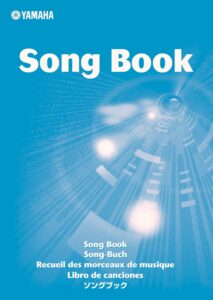 |
|
| Yamaha PSR E373 YPT-370 PSR-EW310 Song book |
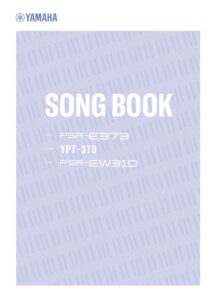 |
|
| Yamaha Song Book |
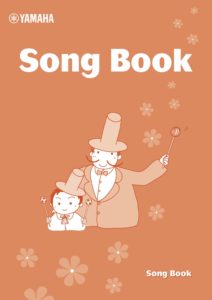 |
Yamaha Song Book |
| Yamaha Song book |
 |
Yamaha Songbook |
| Yamaha Songbook |
 |
Yamaha-Songbook |
| Yamaha songbook 50 Piano Greats for the piano (Yamaha collection) |
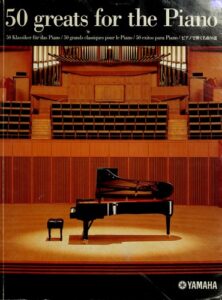 |
50 Piano Greats for the piano (Yamaha collection) |
| Yamaha Songbook Contemporary Vol. 1 |
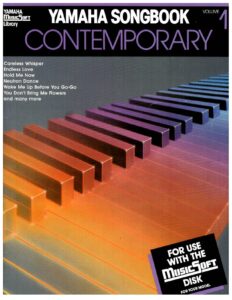 |
Yamaha Songbook Contemporary Vol. 1 |
| Yana Bobalik Mysterious Music Я.Бобалік Songbook |
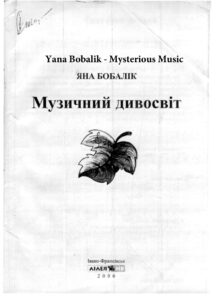 |
|
| Yana Bobalik Secret Music From Mysterious Music Я.Бобалік Таемна Музыка |
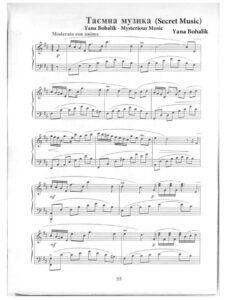 |
|
| Yann Tiersen Rue des Cascades (sheet music) | yann tiersen cascades sheet-music | |
| Yann Tiersen Mother’s Journey |
 |
|
| Yann Tiersen – Tabarly Sheet Music |
 |
|
| Yann Tiersen – Comptine Dun Autre ete | ||
| Yann Tiersen – La Dispute – Amelie Poulain | ||
| Yann Tiersen – La Valse d’Amelie Poulain | Yann Tiersen – La Valse Damelie | |
| Yann Tiersen – Le moulin – Amelie Poulain | Le Moulin – Amelie Poulain | |
| Yann Tiersen – Six pièces pour piano – Volume 2 – Amélie Poulain |
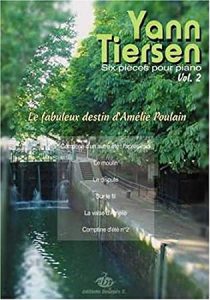 |
Yann Tiersen – Six pieces pour piano – Volume 2 – Music Sheet |
| Yann Tiersen – Summer 78 | ||
| Yann Tiersen – Sur Le Fil |
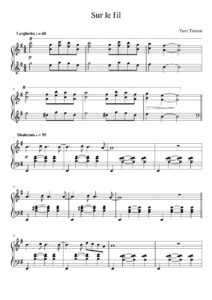 |
|
| Yann Tiersen – Pièces pour piano vol 1 et 2 + divers |
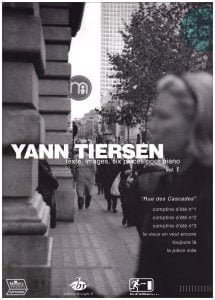 |
Yann Tiersen – pièces pour piano vol 1 et 2 + divers  |
| Yann Tiersen Eusa 2015 Songbook |
 |
|
| Yann Tiersen J’Y Suis Jamais Alle piano solo (Amélie) |
 |
|
| Yann Tiersen Onze Pièces Pour Piano |
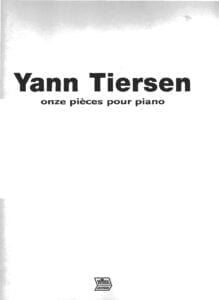 |
Yann Tiersen Onze Pièces Pour Piano |
| Yann Tiersen Partitions intégrales Piano Works 1993-2004 | Yann Tiersen Partitions intégrales Piano Works 1993-2004 | |
| Yann Tiersen Tabarly Complete Book For Piano |
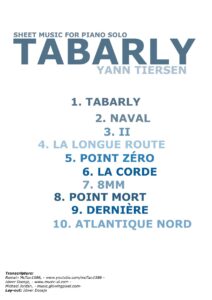 |
|
| Yanni In My Time (Piano Solos) Sheet Music |
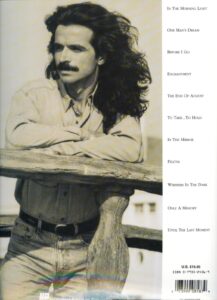 |
Yanni In my time piano solos |
| Yanni One Man’s Dream |
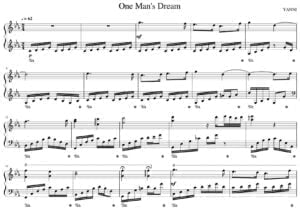 |
|
| Yanni – Per Piano (Piano book) |
 |
Yanni – Per Piano |
| Yanni – In The Morning Light | ||
| Yanni – Nostalgia | ||
| Yanni – One Man’s Dream (Musescore File).mscz | ||
| Yanni -The Best of |
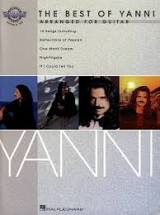 |
 |
| Yanni Ethnicity Book |
 |
Yanni Ethnicity Book |
| Yaron Herman – Hallelujah (Leonard Cohen) transcription |
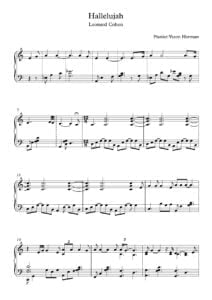 |
|
| Yashal (Elisa) | ||
| Yasuharu Takanashi – Naruto Shippuden OST – Loneliness |
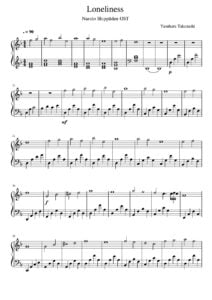 |
|
| Yedidia, Ronn Piano Sonata No 3 outcries (manuscrit) |
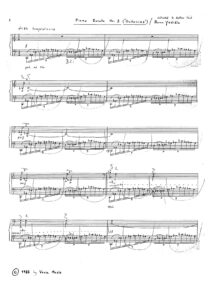 |
|
| Yehezkel Raz Ballerina Piano Solo sheet music |
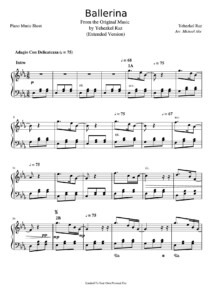 |
|
| YES Fragile |
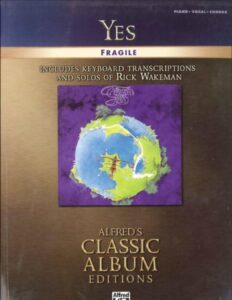 |
YES Fragile |
| YES – Complete Deluxe Edition |
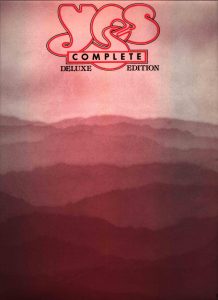 |
YES – Complete Deluxe Edition |
| Yes Close To The Edge The Story Of Yes (Book) |
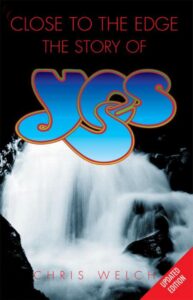 |
|
| Yes The Best Of Guitar Songbook with TABs |
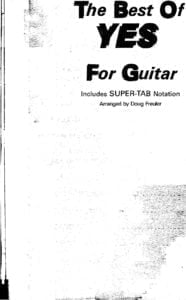 |
Yes The Best Of Guitar Songbook |
| Yesterday Piano Cello – Piano Sheet Music – Paul McCartney |
 |
|
| Yesterday Piano vocal guitar Songbook Featuring Music From the OST |
 |
|
| Yesterday The Beatles For Jazz Piano (Musescore File).mscz | ||
| Yesterday when I was young (Charles Aznavour) | ||
| Yimkin Law ( Et maintenant on va où OST) Racha Rizk | ||
| Yiruma – 27 May | ||
| Yiruma – Destiny Of Love | ||
| Yiruma – Dream | ||
| Yiruma – Dream A Little Dream Of Me | Yiruma – Dream A Little Dream Of Me | |
| Yiruma – Falling |
Carl Czerny, Viena (Austria) 1791 – Viena (Austria) 1857
Piano Technique:
Czerny – The School of Velocity Op. 299 No. 39 (sheet music)
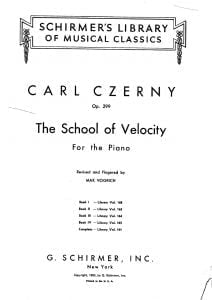
Czerny – Le Perfectionnement, Op.755, No. 24 (with sheet music, partition)
Czerny – 100 Progressive Studies, Op 139 No 1
Czerny – 30 New Studies in Technics Études de Mécanisme Vorschule zur Schule der Gelaeufigkeit Op. 849 No. 1
Czerny – 30 New Studies in Technics Études de Mécanisme Vorschule zur Schule der Gelaeufigkeit Op. 849 No. 2
Czerny – 100 Progressive Studies, Op.139 No. 16 to No. 20
Carl Czerny. Biography
- Date of Birth, February 21, 1791
- Place of birth, Vienna, Austria
- Deceased July 15, 1857 (at the age of 66)
Few composers have been as interpreted as Carl Czerny in the history of music, and yet little is spoken or written in Spanish about this Viennese composer of the early romantic period.
“Hated” by numerous and still current generations of students and appealed for its virtues by the same number of teachers; Czerny stood out above all for the great legacy of his important didactic work, an area that few composers usually dare to tackle, and in which only some -and very few- are successful.
Owner, moreover, of an important and unjustly ignored instrumental work; Czerny’s didactic work is a milestone in the history of pedagogy and his incessant effort and work deserve fair recognition.
Karl Czerny was born on February 21, 1791 in Vienna, the Imperial and Music-loving Capital of Austria, curiously the same year as Mozart’s death.
His father, Wenzel (Václav) Cerný (The surname “Cerný” was later Germanized to “Czerny”, born in Nimburg in 1750, was a talented musician, amateur violinist (like his own father, Karl’s grandfather), who He had been educated in a Benedictine monastery in Prague (today the capital of the Czech Republic) and, in addition to the violin, he played oboe, organ and pianoforte with great talent.
Settling in Vienna in 1786 with his wife, Wenzel established himself as a skilled music and piano teacher and years later gave birth to their only son, Karl Czerny. Still living in Austria, the family maintained a strong attachment to Czech culture, and, in fact, little Czerny did not speak German until he was 10 years old.
During the early years of his life, Karl Czerny took keyboard lessons from his father, and soon demonstrated remarkable compositional and performance skills.
His first attempts at musical writing (never published) began around the age of seven, and in fact by age ten he was able to play “…clearly and fluently any composition by Mozart and Clementi…”, a virtuosity that went hand in hand with his comprehensive and surprising lifelong study of the work of Ludwig V. Beethoven (1770-1827).
In his autobiographical notes, Czerny once described his childhood as “carefully isolated from other children”, and after those first years of permanent study with his father, he continued his training with fellow Czech Wenzel Krumpholz (pianist and violinist of the Orquesta of the Imperial Court, 1761-?).
In 1800, at the age of 9, Karl gave his first concert in his hometown, the Concerto in C minor K. 491. Mozart’s own style had impressed him very favorably years before, listening to the same concerto performed by Johann Nepomuk Hummel. (1778-1837), of Slavic-Hungarian origin and sometime a disciple of Mozart.
The following year, his teacher introduced him to Beethoven, and he performed for him the first movement of Mozart’s Piano Concerto in C Major K. 503 and Beethoven’s own “Pathetic” Sonata. From then on, Czerny became not only a devoted disciple of Ludwig but also an important disseminator of his work and a dedicated and careful interpreter of the new piano forms.
Ludwig once wrote of him: “…I who sign below have the pleasure to testify that young Carl Czerny has made an extraordinary advance on the piano, beyond what could be expected at the age of fourteen. I think he deserves all possible help, not only for what I have just stated, but for your amazing memory… “
Ludwig once wrote of him: “…I who sign below have the pleasure to testify that young Carl Czerny has made an extraordinary advance on the piano, beyond what could be expected at the age of fourteen. I think he deserves all possible help, not only for what I have just stated, but for your amazing memory… “
So close was the relationship between the two that Beethoven entrusted Czerny, years later, with the musical education of his nephew Carl, although he never stopped correcting and suggesting study and fingering techniques.
Parallel to his career as an interpreter, Czerny at the age of 15 began to venture into teaching.
At the age of 19, he met the great Italian pedagogue Muzio Clementi (1752-1832) in Vienna, whose work “Noveau Gradus ad Parnassum” had an impact on our composer and inspired him in his subsequent and magnanimous didactic creation.
Despite Czerny being an excellent performer, with virtuosic mastery and unrivaled ease and memory, at the end of his adolescence he abandoned his career as a performer and devoted himself almost entirely to teaching piano and composition.
His dedication as a teacher (more than hard, since he gave classes during the day and composed for the students at night) began to bear fruit, and very soon his name acquired fame in bourgeois and aristocratic circles, who competed to take lessons with him. Many of his disciples followed his didactic line, such as Liszt’s famous rival, Sigismond Thalberg (1812-1871); the Hungarian Stephen Heller (1813-1888) and the legendary Polish piano teacher Theodor Leschetizky (1830-1915).
One of his most important students, however, is Ferenc (Franz) Liszt (1811-1886), to whom he taught from 1822 and for two years. The Austro-Hungarian composer dedicated his “Transcendental Studies” to Czerny.
Fryderyc Chopin (1810-1849) also visited the Master in 1829, although Chopin did not retain a favorable opinion of Karl… (Although Chopin and Czerny maintained a prolific correspondence (which is still preserved today), in which they expressed mutual admiration , Chopin did not always have a good opinion of Karl’s music.
Although it may be common that Chopin did not get good first impressions of people (remember the accounts of the Pole when he first saw the writer George Sand), he was many times unfair in his comments to third parties.)
“…He is a good guy (…) but nothing more (…) he has arranged another overture for eight pianos and sixteen pianists and seems delighted with it” (…) “Czerny was warmer than any of his compositions” Chopin said ironically, after to visit him for the first time in Vienna.
At this time, Czerny already had an enormous number of compositions, which reached over opus 800 (symphonies and chamber works that were not well received by critics), and many of them were technical studies and development exercises for pianists: hundreds of works that are today the foundation of the study of the instrument.
All of his didactic works were quickly published in Vienna, and with such success among the public that these studies are still included in the programs of all conservatories in the world today.
Among these pieces, “The School of Speed” and “The Art of Fingering” stand out.
Czerny’s literal career as a composer began in about 1812, after copying many works by Bach, Scarlatti, and other early composers.
He occupied his free hours studying the art of orchestration and composing, first essays, then complete works, symphonies and piano works.
In his chamber works (sonatas for piano four hands, piano and strings, etc.), a notable Beethovenian influence is perceived.
Very unfortunately, many of his works were never published, especially sacred choral works (Masses, Offertories, Graduals, etc.). In addition, little material has been recovered from his early days as a composer, as Czerny did not keep an organized record of each of his works at that time.
His deep sensitivity and delicacy of style can be seen in works such as his “Sentimental Sonata in C minor, Op. 10 for four hands”; or in his Piano Concerto in C Major, Op. 153.
His very dedication to teaching demonstrates his dedication and his love for the piano.
At the age of 51, Karl begins to write a few short autobiographical notes, a custom more than widespread in the romantic era, “Erinnerungen aus meinen Leben” (“Memories of my Life”, recently published in Austria.
Czerny led a rather solitary life, living with his parents until his mother’s death in 1827 and his father’s death in 1832. He never married, living alone until the day he died.
Despite not having close relatives, he did have many cats (his students always commented on this eccentricity), and, when he was not composing or teaching, he devoted himself entirely to his animals.
On July 15, 1857, at the age of 66, Karl Czerny died at his home in Vienna. His considerable fortune made as a teacher, composer and performer was donated to the Vienna Conservatory and numerous charitable institutions. Many of his works were unfairly forgotten; and his pedagogical work, which today is divided into four categories, continues to be an iron mainstay in the study of every pianist who begins a correct preparation of his technique.
The Ukrainian-Romanian composer and musicologist Eusebius Mandyczewski (1857-1929) cataloged and prepared several Czerny editions, including more than 300 sacred works, as well as finding numerous misplaced manuscripts.
Your contribution has also been very valuable in the recognition of this author. Still not receiving the best of attention from the critics of his day (not, at least, not by Schumann in his important music newsletter), Czerny was quite appreciated by numerous people who trusted him as a teacher and pedagogue.
Czerny’s work as a composer and teacher must be recognized as such; because he comes to life every day on the stands of thousands of pianists who give their effort and passion to the instrument.
The work of the hard-working teacher who taught by day and composed by night is an inspiring figure we should think of as we approach his vast and loving oeuvre.
In 1821, the nine-year-old Franz Liszt began a two-year period studying piano with Czerny. The teacher remarked that he had ‘never had such an impatient, talented and hard-working pupil’, but Czerny lamented that Liszt had begun his performance career too early, and without adequate or sufficient training in composition. But Liszt was an impatient student, despite his youth promising a long life as a virtuoso performer.
He also had as students Anna Caroline Oury, Theodor Döhler, Leopold von Meyer, Louis Lacombe, Albert Sowinski, Sigismund Thalberg, Alfred Jaëll and Queen Victoria, and already at the end of his profession Ivan Ivanovich Armsheimer and to Friedrich Brandeis.
Czerny did not consider his ‘brilliant concert pieces’ to be ‘serious music’. But in this category, he placed his symphonies, overtures, and concertos for piano, many of which are still unknown today, and some of them languish among his hundreds of unpublished manuscripts.
In addition to many technical studies, Czerny published sonatas, sonatinas and hundreds of shorter works, many of which were arranged for piano for four hands in various editions.
He also published a plethora of works based on the national anthem, popular songs, and other well-known songs. In addition to all the compositions cited during the biography, he left the works written in German: Praktische Schule der Composition (Bonn, 1840), and Umriss der Musikgeschichte (Mainz, 1851).
Czerny’s works include a large number of masses, Requiems, symphonies, concertos, sonatas and string quartets. None of these works are regularly performed today. Nevertheless, Czerny’s numerous didactic works for piano continue to be used in the teaching of this instrument.
The composer and musicologist Johann Theodor Viehmeyer (1870-1947) published his work Schule der Virtuosen.
